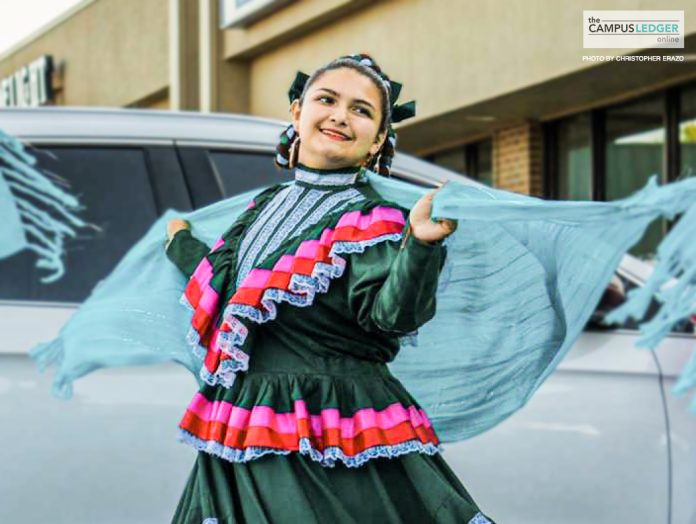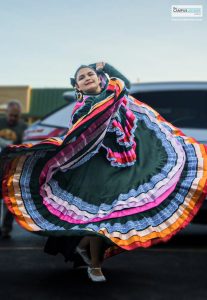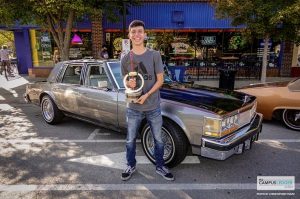
As many families make the journey into the United States in search of an American dream full of prosperity and opportunities, they bring their cultures with them.
As time goes on, some aspects of these cultures, including language, are not shared with younger generations. As a result, a lot of people in the community find it difficult to accept them because of the lack of communication.
According to the Huffington Post, fluency of the Spanish language is lost among Third-Generation Latinos. These Third-Generation Latinos are often judged for it, and most of the time seen as less for being unable to speak Spanish.
The disconnect between appreciation and a sense of not quite belonging has been present in the lives of Natalie Medina and Christopher Erazo. Despite Medina and Erazo not speaking Spanish, they’ve each found ways to break past these challenges and embrace their Latino Heritage.

Medina is part of a Folklórico dance group called Los Bailadores de Kansas City. Folklórico is a type of dance, music, and clothing that highlights Mexican culture. For Medina, Folklórico has become a way to represent and connect with her culture.
“I want to embrace it as much as I can. We still want to represent where we come from,” Medina said. “I took the idea of dancing for my grandfather. I took dancing for him and for those who came to America.”
Through dancing, Medina has found a way to move past the challenges that come with not being able to speak Spanish.
“I definitely got ‘No sabo’ a lot, and at first, it made me embarrassed. I questioned why the language stopped at my grandparents,” Medina expressed.
“No sabo” is used to describe Latinx individuals who aren’t fluent in Spanish. The phrase is used to belittle people and indicate that they’re not attuned to their culture.

Erazo describes the negative connotation the phrase carries.
“People say I’m not Mexican because I don’t speak the language,” Erazo said. “They look at me like I’m a poser just because I don’t speak Spanish.”
Erazo has been able to move past this disconnect in his life and embrace his culture by participating in Lowrider events in his community. Lowriders are customized cars with lowered bodies, serving to allow the owner to express their identities; cultural, social and aesthetic.
“My heritage is super-important to me because that’s just who I am,” Erazo emphasized. “There was never a time where we weren’t going to Lowrider events. It’s a lifestyle for me.”
Both Medina and Erazo feel it’s important to not be ashamed of your culture, and embrace it in any way you can.
Medina had the following advice for Non-Spanish-speaking Latinos.
“Don’t be ashamed of your culture. Don’t be afraid to learn, and don’t be afraid to put yourself out there. Honor your roots.”
Erazo also offered a piece of advice for Non-Spanish-speaking Latinos.
“The biggest thing I can say is language isn’t the entire culture. Be proud of who you are, don’t feel like a language can hold you down. Hold your heritage high.”
Victor Monterroza, volunteer reporter





















